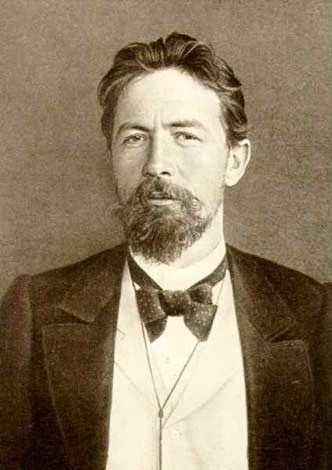Anton Chekhov (1860 1904)
Chekhov stands out as one of the greatest short story writers of the world. Although he received an M.D. degree, he never practiced medicine, but devoted himself to writing. His scientific studies were, however, of service to him. There seems to be no limit to the range ofhis knowledge of the human family. His situations are handled adroitly and with a strict economy of words.
In The Bet he shews all the cynicism, fatalism, bitterness, pettiness and viciousness that can result from a simple jest.
The present translation, by J. Middleton Murry and S. S. Kote- liansky, is reprinted from The Bet and Other Stories, by permission of the publishers, George Allen & Unwin.
The Bet
It was a dark autumn night. The old banker was pacing from corner to corner of his study, recalling to his mind the party he gave in the autumn fifteen years before. There were many clever people at the party and much interesting conversation. They talked among other things of capital punishment. The guests, among them not a few scholars and journalists, for the most part disapproved of capital punishment. They found it obsolete as a means of punishment, unfitted to a Christian State, and immoral. Some of them thought that capital punishment should be replaced universally by life-imprisonment.
“I don`t agree with you,” said the host. “I myself have experienced neither capital punishment nor life-imprisonment, but if one may judge a priori, then in my opinion capital punishment is more moral and more humane than imprisonment. Execution kills instantly, life-imprisonment kills by degrees. Who is the more humane executioner, one who kills you in a few seconds or one who draws the life out of you incessantly, for years?”
“They`re both equally immoral,” remarked one of the guests, “because their purpose is the same, to take away life. The State is not God. It has no right to take away that which it cannot give back, ifit should so desire.”
Among the company was a lawyer, a young man of about twenty- five. On being asked his opinion, he said:
“Capital punishment and life-imprisonment are equally immoral; but if I were offered the choice between them, I would certainly choose the second. It`s better to live somehow than not to live at all.”
There ensued a lively discussion. The banker who was then younger and more nervous suddenly lost his temper, banged his fist on the table, and turning to the young lawyer, cried out:
“It`s a lie. I bet you two millions you wouldn`t stick in a cell even for five years.”
Read More about The Matron of Ephesus 1








